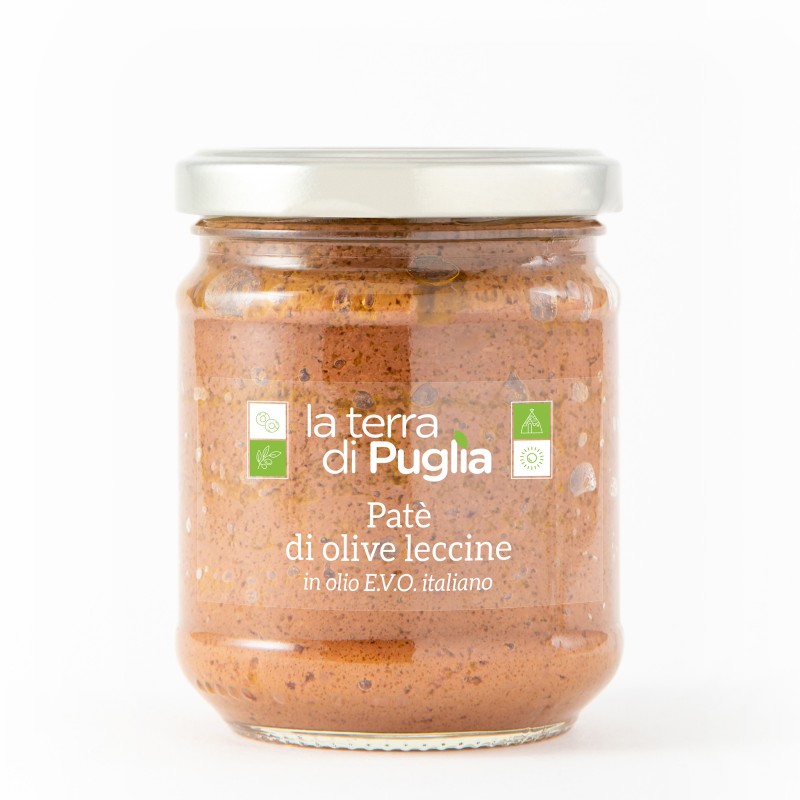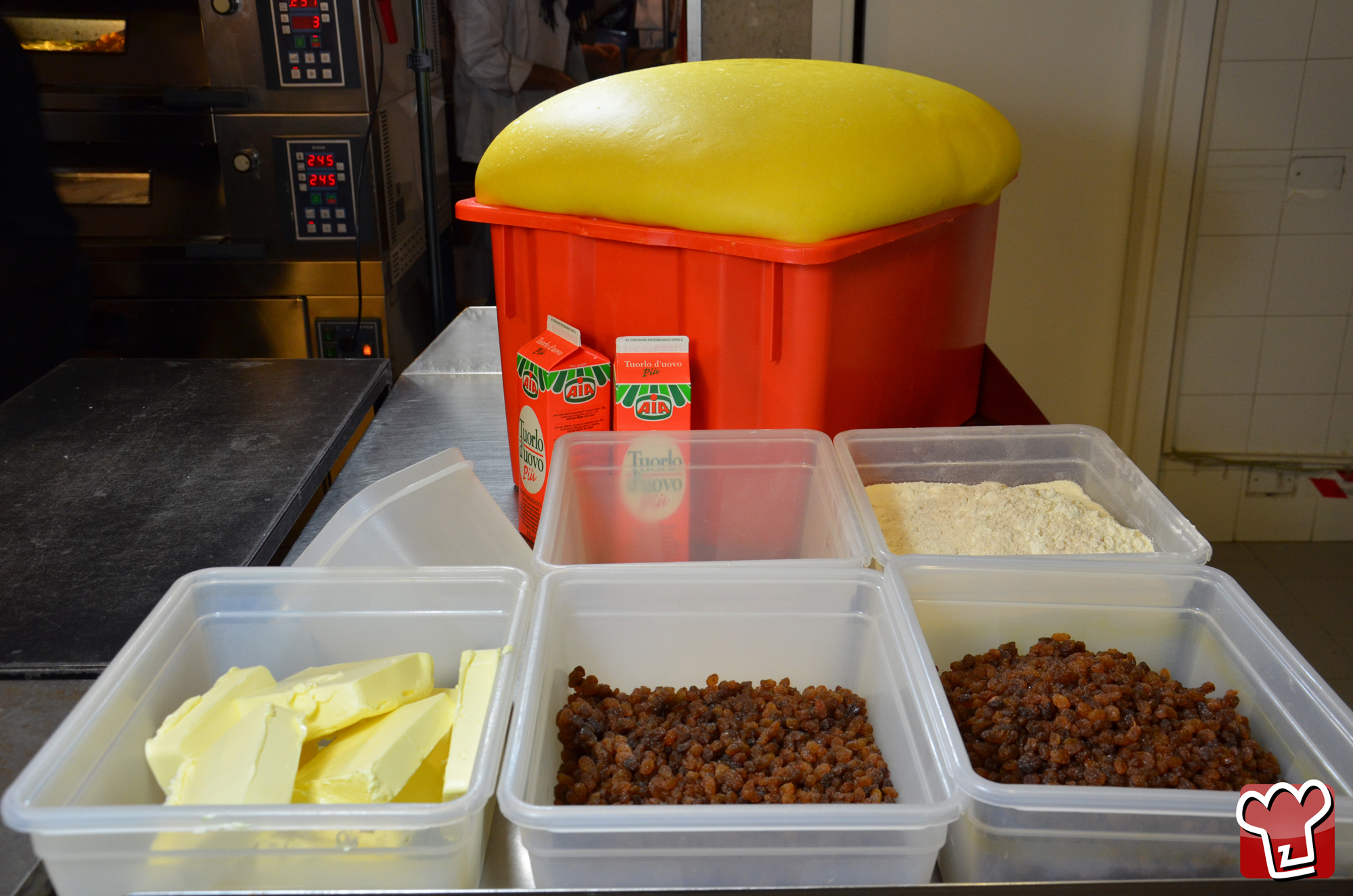Renato Bosco’s Panettone
Our daily appointment with the most delicious and enjoyable recipes of Italian gastronomy arrives at an historic recipe. It is one which has spread across the world in a remarkable fashion, and which appeals to both adults and children at Christmas time with its delicious simplicity. We asked our friend Renato Bosco - who has already been involved in making other sweet and savoury treats for us - to make this, the central character of the Italian Christmas tradition: panettone, which for centuries has dominated the dining tables of Italy. It is a recipe that is quite a challenge to make, certainly, but we’re sure that when you see the result you will be overwhelmed with enthusiasm, and will throw all your energy into the preparation of our delicious cake. We recommend just one thing: don’t be tempted to sample the product of your labours before it's ready!
Ingredients
-
sugar
-
Flour
-
butter
-
salt

Send the recipe
Preparation
The starter dough is made with water, flour, egg yolks, and natural yeast to the third refreshment. Mix together and leave to rise for 14-16h at 18-20°C. Transfer the starter dough to a food mixer, add the flour and knead well for 10 minutes until the dough is firm and has a very pliable consistency. Add the pastry cream and allow it to be absorbed slowly so that the dough does not lose its shape and integrity. Once the pastry cream is blended in add the sugar. Amalgamate the sugar and add the egg yolks slowly. Then add the butter mixed with vanilla beans. Leave to combine in the food mixer at a very low velocity. Add the salt: the salt is added to give the perception of sweetness and to help the formation of the gluten and therefore retain gas in the rising phase. Add the orange essence to give more flavour. Add the raisins as the last ingredient. When you’ve finished mixing, store it in a large bowl or basin and let it rest for 50 minutes at room temperature so that it reactivates. Then transfer to a well-greased board and divide it into 1.1kg pieces. Once divided out, take a portion and place it on a work surface. Start the ‘pirlatura’, whereby you simply turn the portion of dough in a circle with your hands while it sits on the work surface, giving it a rounded shape. Then put the cake in the baking container. Let it rise for 6 hours at 26°C. Proceed with the ‘scarpatura’ phase: cut a cross in the surface of the cake with a razor blade, raise the flaps and insert in the open centre a knob of butter, then close the flaps. Bake the cake for 50 min at 170°C. Once cooked, clamp it and allow it to rest for 10 hours upside down at room temperature.
Step by step
|
View the step by step
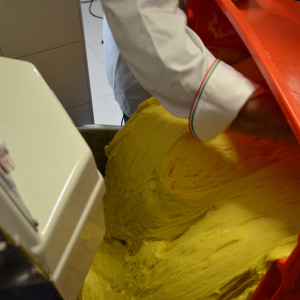
|
Add the starter dough to the food mixer
|
|
View the step by step
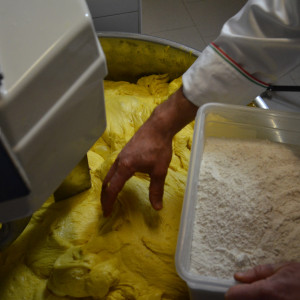
|
Add the flour and leave to knead for 10 minutes
|
|
View the step by step
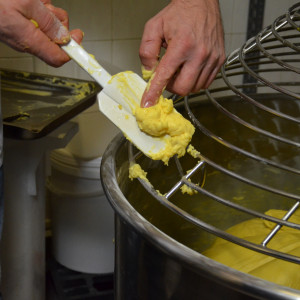
|
Add the pastry cream very gradually
|
|
View the step by step
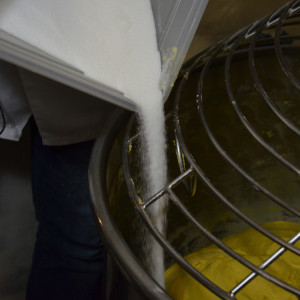
|
Add the sugar very gradually and leave to knead
|
|
View the step by step
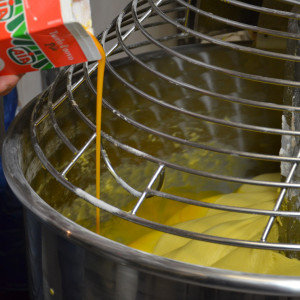
|
Add the egg yolks and leave to knead
|
|
View the step by step
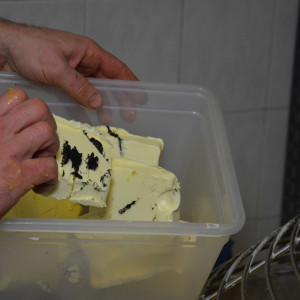
|
Add the vanilla seeds to the butter and then add to the dough
|
|
View the step by step
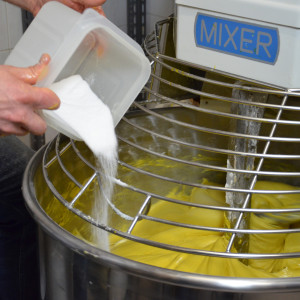
|
Add salt to the dough
|
|
View the step by step
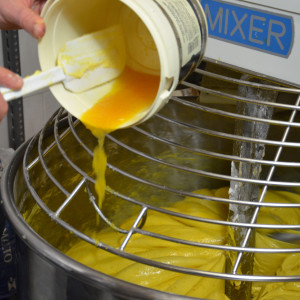
|
Add the orange essence to the dough
|
|
View the step by step
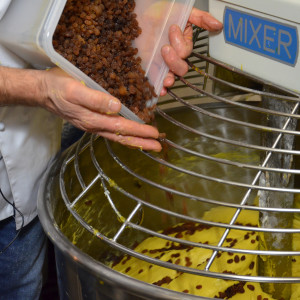
|
Add the raisins to the dough
|
|
View the step by step
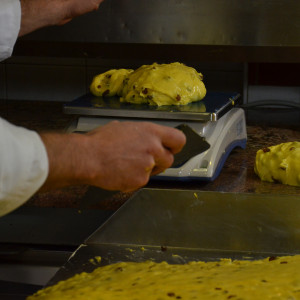
|
Divide the dough into 1kg portions
|
|
View the step by step
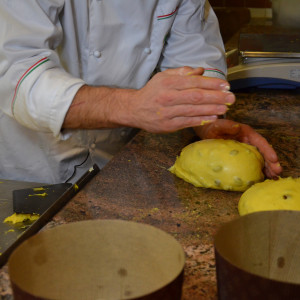
|
Shape into a circle with your hands with the dough sitting on a flat surface, then place in a paper baking cup. Leave to rise for 6 hours
|
|
View the step by step
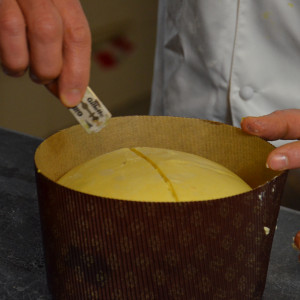
|
Cut an X on the surface of the panettone with a razor blade
|
|
View the step by step
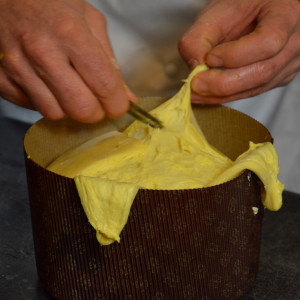
|
Raise up the flaps
|
|
View the step by step
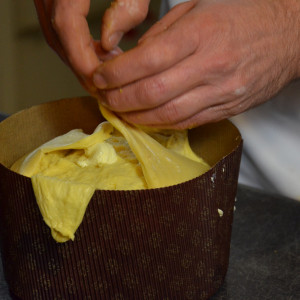
|
Add a knob of butter to the centre then re-close the flaps
|
|
View the step by step
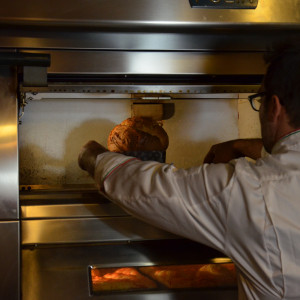
|
Bake for 50-60 minutes at 160-170°C
|
|
View the step by step
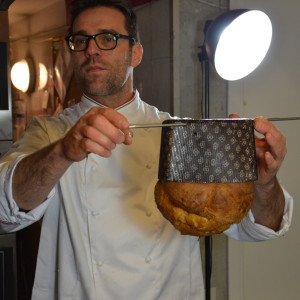
|
Clamp the panettone firmly and leave to rest upside down for 10 hours at room temperature
|
|
View the step by step
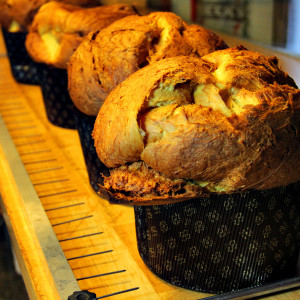
|
Here is the finished panettone in all its splendour
|

